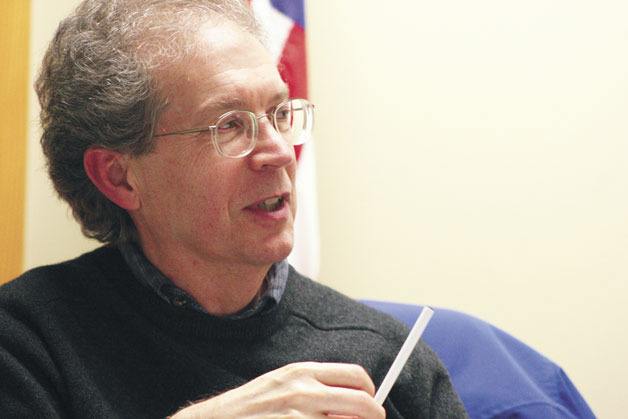LANGLEY — City council members are considering cutting the salaries of city employees to raise money for pruning trees around town.
Langley is facing another tight budget for 2011, prompted largely by a decline in sales-tax revenues and the drop-off in building because of the sour economy.
At the close of a second hearing on next year’s spending plan, council members said Monday they were thinking about reducing salary levels so they would have $10,000 to devote to tree trimming. The cuts would come on top of reductions in workers’ pay already planned for next year.
The council began its review of the budget in late October, and city employees are already facing another year of frozen salaries and no merit increases. The $4.5 million budget also includes the elimination of a full-time public works employee, and “placeholder” cuts to salaries that Mayor Paul Samuelson has not yet detailed in public.
Given Langley’s fat-free budget, and limited places to cut besides compensation for employees, some on the council talked about revisions to worker pay that would give them funding for other priorities.
Councilman Robert Gilman pointed to the pay of longtime Langley Police Chief Bob Herzberg, who is expected to retire next year after 32 years of serving the city.
Though Gilman praised Herzberg’s service, and said it would be preferable if Herzberg himself chose when to retire, Gilman indicated that the chief’s departure date may not be one of the chief’s choosing.
“I would love to be able to have it work out that way,” Gilman said. “I also recognize that the sooner he goes, the more the city saves.”
“I don’t know how that plays out,” he added.
Gilman — who also proposed hiring a part-time “volunteer coordinator” for city hall — also questioned how long the city should keep two full-time planners on staff.
And he said Langley has “relatively high” salaries for some employees, when compared with other cities, and the city’s pay range for workers should be examined.
“One way or another, we are going to need to be able to make sure that Langley’s compensation is in line with other similar cities,” Gilman said.
One way to reduce worker pay, he said, could be an across-the-board cut for employees who make more than $50,000.
According to a compensation chart for 2010 prepared by the city, Langley had the equivalent of 16.7 full-time employees (FTEs) this year, and all but two received total compensation packages of more than $50,000.
Councilwoman Rene Neff agreed that the city’s pay ranges for workers should be reviewed as the council looks for places to cut to provide funding for tree trimming in town.
“That’s the only place I can think of,” Neff said.
Samuelson questioned the suggestion, however, of hiring a part-time volunteer coordinator at a time when the city was already reducing the ranks of its employees and cutting pay.
He said his proposed budget includes cuts to worker pay, though he said details would not be provided until the council’s meeting on Dec. 20.
“I believe that I’ve built those numbers into the budget,” Samuelson said.
It’s expected that the finance department will bear the brunt of reduced salaries; cuts of $42,104 have been built into the budget. The department — which boasted six employees in the mid-1990s — has 2.7 FTEs.



